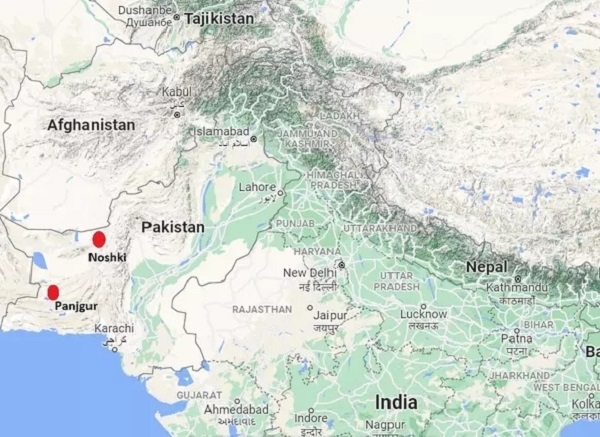New Delhi, (Samajweekly) The well-coordinated twin- strikes by Baloch rebels on Thursday marked one of the most daring attacks on the Pakistani military in recent years. In these sophisticated attacks on two Pakistani military camps, Baloch rebels used US made weapons, worrying the Pakistani military establishment no end.
Citing intelligence reports, the Pakistani Interior Minister Sheikh Rashid told media that: “Baloch militants are not capable of launching major attacks in Nushki and Panjgur. TTP (Tehreek-e-Taliban Pakistan) has the capability, experience and latest NATO weapons to launch such attacks. There’s some understanding between the TTP and Baloch militants. They have their hideouts in Afghanistan.”
And for the first time TTP agreed with the Pakistan government. The spokesperson of the banned militant organisation, Mohammad Khorasani congratulated the Baloch rebel groups for their audacious attacks on the “enemy” forces.
“The Pakistani army is carrying out the massacre in Balochistan. We are against the massacre of Balochistan as well as in Waziristan by the Pakistani army. Our enemy is common.”
For the last one year, the TTP has been providing military training to Baloch fighters. In exchange, the Baluch rebel groups assist the TTP with logistics in Balochistan. The tactical alliance has coincided with a sharp uptick in attacks against Pakistani security forces in Balochistan in recent months. Pakistan watchers say that TTP has provided bases to the Baloch rebels in the Bermal district of Afghanistan’s eastern province of Paktika, which is adjacent to Pakistan’s South Waziristan tribal region, the TTP’s stronghold.
“In the last 30 days Balochistan has seen major bold attacks on Pakistani forces. The Pakistani army’s media wing ISPR is underplaying & misreporting on the attacks in Balochistan. A BLA attack in Noshki, where they had no presence before just shows that TTP and BLA are getting closer to each other, even supporting each other in their ops,” says one senior Pakistani journalist.
But the fact is that the Baloch rebels have changed their tactics and have upped the ante, throwing a huge challenge to Pakistan’s security forces and intelligence agencies.
The TTP and the Baloch rebel groups have also increased their anti-China rhetoric recently. According to Pakistani sources these groups have maintained close ties with the East Turkestan Islamic Movement (ETIM), a militant group made up mostly of Uyghurs.
While Pakistan had been routinely blaming the previous Afghan government’s intelligence service and India’s RAW in the past for fomenting trouble in Balochistan and KP, there was a sense of optimism that Kabul’s new rulers would uphold their commitment and not allow Afghanistan’s soil to be used against any state. But to Pakistan’s frustration, there is no indication that this is happening.
Last week, Moeed Yusuf, the National Security Advisor of Pakistani Prime Minister Imran Khan, conveyed to the Taliban government in Afghanistan that the TTP leaders have allowed the Baloch militants to make their hideouts near Kandahar and Helmand provinces in Afghanistan. He also warned that Pakistan will strike inside Afghanistan unless its affiliate, the Tehreek-e-Taliban Pakistan (TTP), stops cross-border attacks.
Pakistan is back to the situation where it has to face two insurgencies: one in the North West led by the TTP and the other in the South led by Baloch rebels. These intensified attacks have sent out an ominous message when Pakistani PM Imran Khan is in China asking for more funds to revive the China Pakistan Economic Corridor (CPEC) — that the security situation in Pakistan has gotten out of hand.










